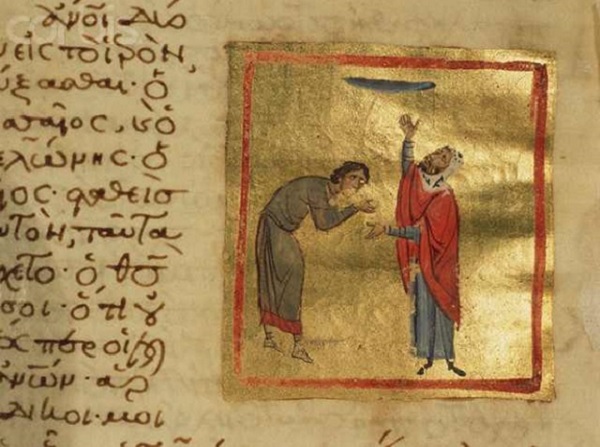Self-Righteousness and Humility
28 January 2018Today’s Gospel reading (Luke 18, 10-14), presents two types of people who are typical of their kind, a Pharisee and a Publican (Tax-Collector), praying in the Temple. They represent the two opposite poles of society at that time. One is pious and righteous in the eyes of other people, an expert in the Law, a member of the Pharisees, who were a leading religious group. The other was the representative of the class of sinners, a man whose profession was synonymous with rapacity, violence and the draining of the resources of the people. In the mind of the whole of society at that time, a publican was the worst of sinners.

So what do these two people say in their prayer? Let’s look first at the prayer of the Pharisee, in an effort to identify whether this kind of religious-minded person is someone we’re familiar with today. ‘God, I thank you that I am not like other people: thieves, rogues, adulterers, or even like this tax-collector here. I fast twice a week; I give a tenth of all my income’. This prayer is a hymn of praise to himself and his virtues. The Pharisee enumerates his works and feels incomparably superior to other people, whom he speaks of, in general, as being sinners. He thanks God, or rather congratulates himself,that he’s so much better than the rest. He has no idea that he might be lacking anything. He’s self-sufficient and seems not to depend on God at all, because he has so many of his own works on nbwhich he can rest and can boast about. At the centre of the world he sees not God but himself, with his all too recognizable virtues. How could God not take the same view of this accomplished, virtuous man? He feels as close to God as if he’s signed an agreement with Him so that they can jointly judge and condemn all sinners.Does God, then, agree with this certainty on the part of the Pharisee? The answer is given to us at the end of the parable.
But let’s look also at the prayer of the Publican. He’s heart-broken because of his sins and, recognizing that his every action and expression is linked to sin, he humbly begs God’s forgiveness, beating his breast: ‘God be merciful to me, sinner that I am’. He doesn’t judge anyone and condemns only himself, realizing that, without God’s mercy, he’s completely lost.
The end of the parable tells us that it was the humble Publican who ‘was vindicated’, that is, the one who found grace, and left for his home innocent and reconciled to God, rather than the pompous Pharisee. Because those who elevate themselves will be humbled and those who are humbled will be elevated.
The end of this story must have come as quite a shock to those listening to Jesus, because everyone believed in the religious superiority of the Pharisees over the sinful tax-collectors. Jesus, however, wanted to invert the prevailing view, which saw human actions purely externally, and instead wished to show that the depths of the heart, which only God sees, aren’t always in accord with outward appearances.
Let there be no misunderstanding: Jesus doesn’t condemn the Pharisee for being virtuous and for observing his religious duties, butfor basing his life on them rather than on God, because he’s self-righteous and hasn’t the slightest suspicion that the basis of all the virtues is humility. Nor does Christ praise the publican for his sinfulness, but because of his awareness of it and his recognition of his proper place as regards God’s judgment. He begs for mercy, because his only hope of salvation is God, since he has nothing of his own to rely on.
As it says a little earlier in the Gospel, the parable is addressed to ‘some who trusted in themselves that they were righteous and regarded others with contempt’, and there are people like this in every day and age. They’re people who think of themselves as religiously self-sufficient and accomplished in the virtues, people who judge others and think of them as being irrevocably mired in sin. They gloat over describing the punishments ordained by God for such people, quite forgetting that they themselves will also be subject to God’s impartial judgement. And since such behaviour involves hypocrisy, the term ‘Pharisaical’ has come to mean ‘insincere’.
By placing this reading at the beginning of the Triodio, the Church wants to guard the faithful against the conceited thinking of the Pharisee, which may also lurk within the breast of all Christians. It also wants to promote the example of the Publican, who repents over his way of life and prays with contrition. The following hymn of the Church is an excellent summary of the message of the parable:
‘Let us flee the proud speaking of the Pharisee and learn the humility of the Publican. With sighing let us cry to the Saviour: Have mercy, for you alone are compassionate towards us’ (Kontakio, Mattins, Sunday of the Publican and the Pharisee).
Source: www.agiazoni.gr






